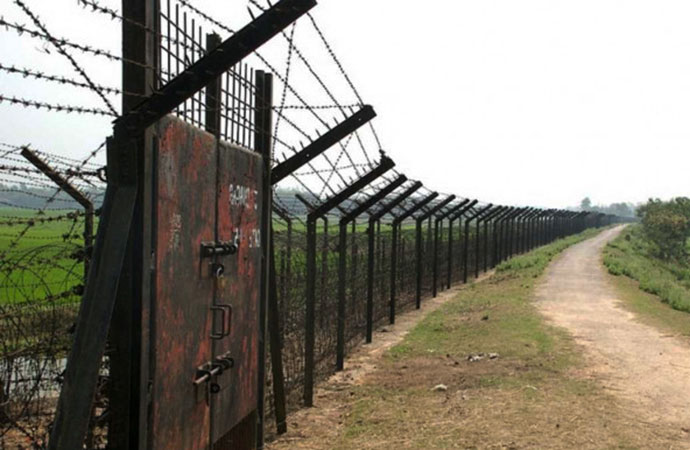Nation this week

Image: Courtesy
Tensions flared on several points along the 4,096-km international border between India and Bangladesh. Indian High Commissioner to Bangladesh Pranay Verma was summoned to the Foreign Ministry amid tensions touched off by recent BSF activities along the border. Bangladeshi officials have alleged the Indian side violated existing agreements and protocols on border management by going ahead with the fencing works without consultations.
In turn, Bangladesh's acting high commissioner Mohammad Nural Islam was summoned by the External Affairs Ministry to South Block and informed that India has "observed all protocols and agreements" between the two governments and the BSF and BGB while undertaking security measures at the border, including fencing, according to an official readout. The Bangladeshi side has contended that "defensive structures", such as fencing, within 150 metres of the border can be built only after consultations between the two countries.
Violence broke out in front of the National Curriculum and Textbook Board (NCTB) building in Dhaka's Motijheel area on Wednesday, during protests over the inclusion of the term "Adivasi" in textbooks, with a group called Students for Sovereignty reportedly attacking demonstrators from minority adivasi communities. The group opposing the inclusion, Students for Sovereignty, held a protest starting in the morning, calling for the removal of the word "Adivasi" and the punishment of those responsible for alleged fictional depictions of the July uprising in textbooks.
Meanwhile, a group of students from ethnic minority groups, under the banner "Aggrieved Adivasi Students," gathered in front of NCTB to demand the reinstatement of a piece of graffiti from the July Uprising on the cover of a textbook for classes 9 and 10. SS though came armed with stumps used in cricket, with flags wrapped around them, and in the ensuing clash, used them to seriously injure several adivasi protesters, including women.
The National Board of Revenue (NBR) is set to revise the value-added tax (VAT) on restaurants, reducing it from the standard rate of 15 percent. The tax administration informed the Bangladesh Restaurant Owners Association of the decision in a letter, though it did not specify the new rate. The NBR stated that the decision was made after reviewing a letter sent earlier by the association.
"Under the circumstances, your cooperation is sought for increased revenue collection and maintaining peace and stability," the letter said. This move follows mounting pressure from restaurant owners, who had threatened to strike indefinitely in response to the increased VAT. The NBR's decision comes less than a week after the interim government issued an ordinance raising VAT and Supplementary Duty on nearly 100 goods and services, including restaurants and non-AC hotels. Previously, the VAT rate for restaurants was set at 5 percent.
The Bangladesh Financial Intelligence Unit (BFIU) restructured 11 of its investigation teams to investigate allegations of illegal income, tax evasion, and money laundering by the country's top 10 business conglomerates, as well as the family of ousted Prime Minister Sheikh Hasina. A BFIU official said on condition of anonymity that due to some technical issues, the previously formed teams were restructured. The investigation now includes links to Sheikh Hasina's family. However, no team has been dissolved; instead, changes have been made to the officials within the teams.
Previously, the ACC, CID, and the Customs Intelligence and Investigation Directorate had jointly launched investigations into allegations against the country's top 10 business conglomerates. The ACC led investigations into six of these groups, while the CID handled four. Both agencies were tasked with submitting their investigation reports to the court upon completion. The BFIU, the financial intelligence wing of the central bank, coordinated the joint investigations, with legal assistance provided by the Attorney General's Office.

























Leave a Comment
Recent Posts
Pedaling Through the Mangroves ...
The journey from the bustling streets of Barishal to the serene, emera ...
Why the Interim Government mus ...
Two weeks out from what is expected to be a red letter day in the figh ...
Doesn’t matter who thinks what about Bangladesh deci ..
The Other Lenin
US President Donald Trump said his administration
Govt moves to merge BIDA, BEZA, BEPZA, MIDA